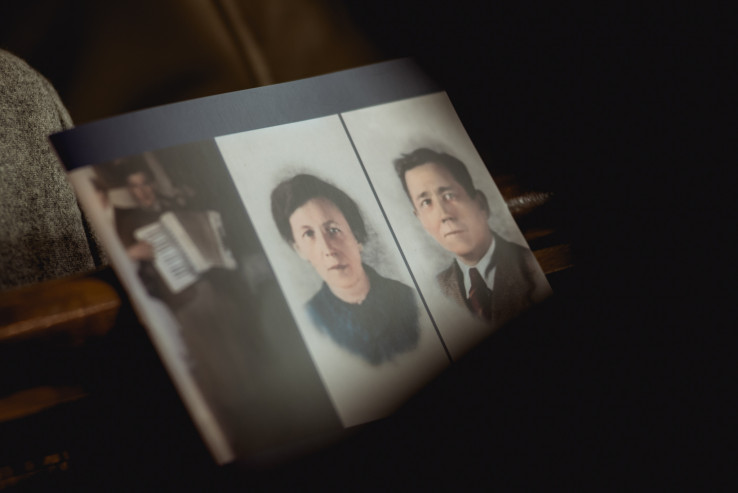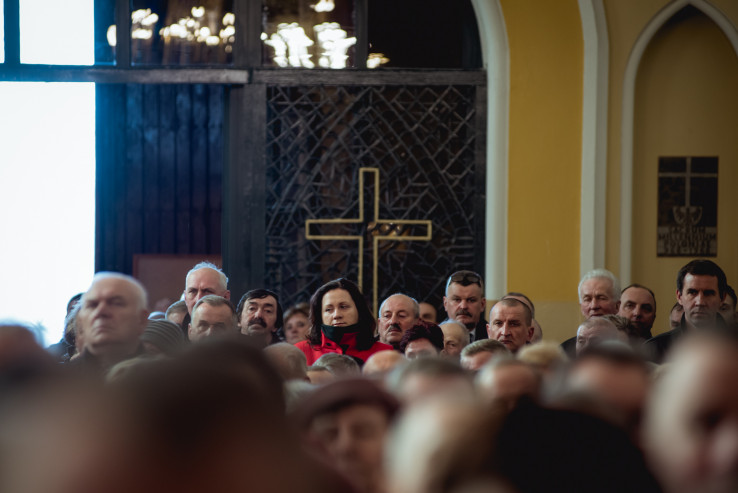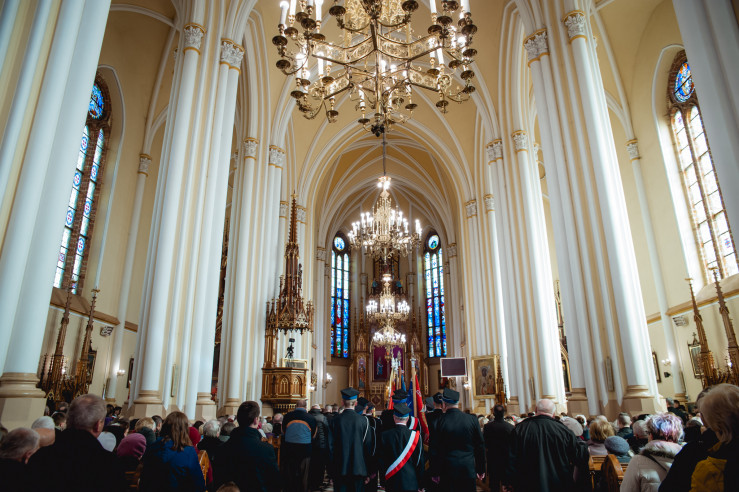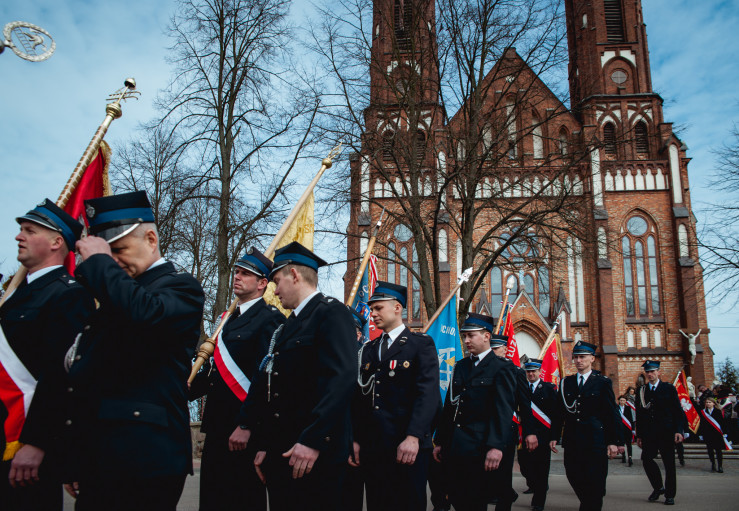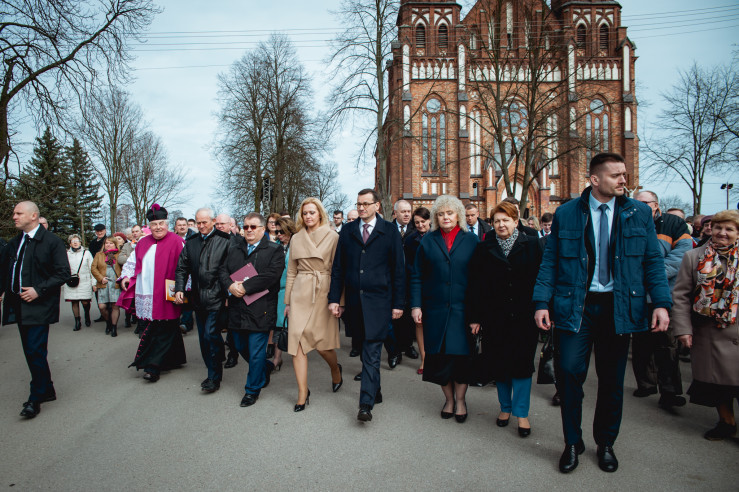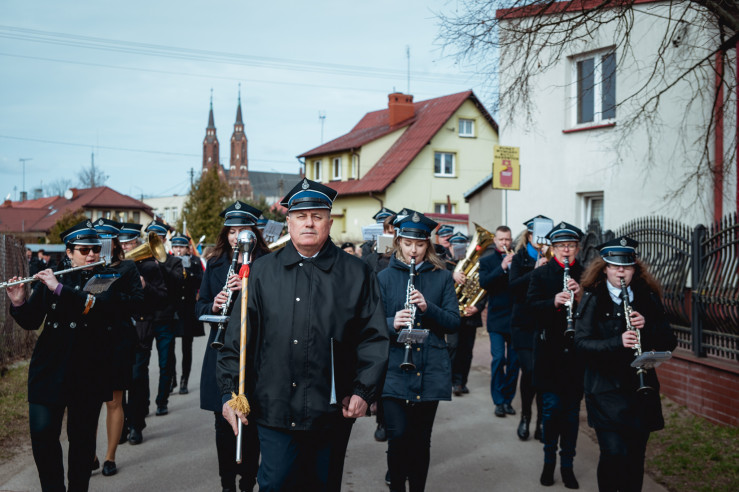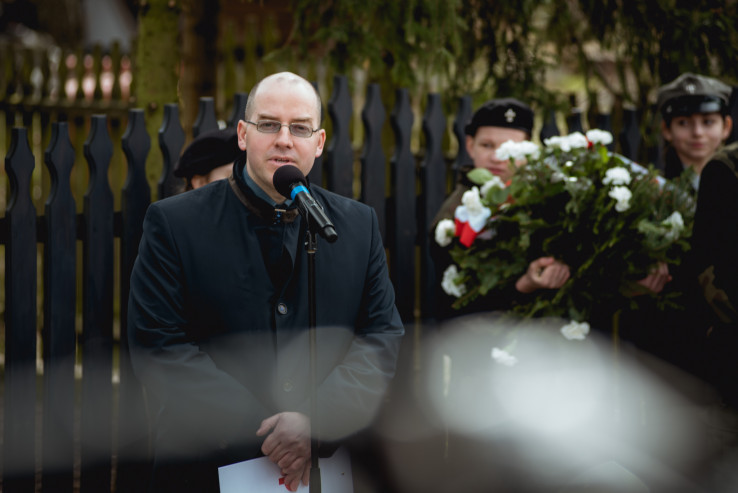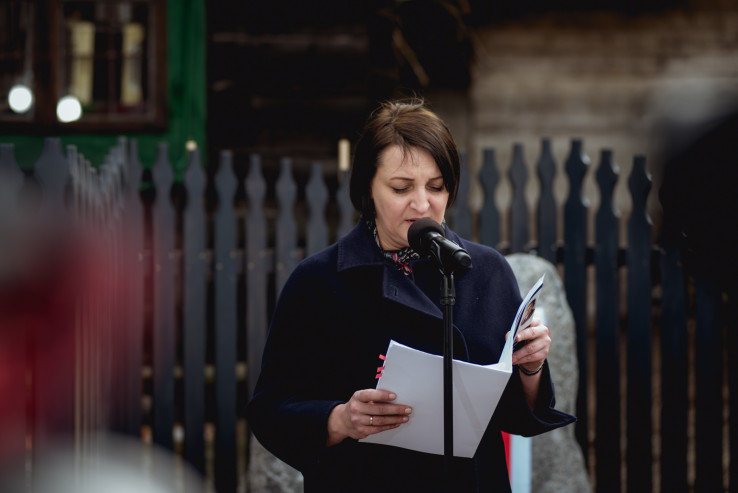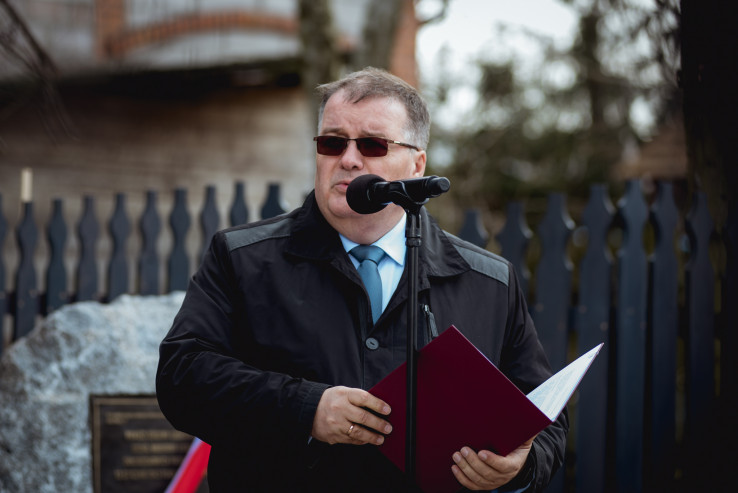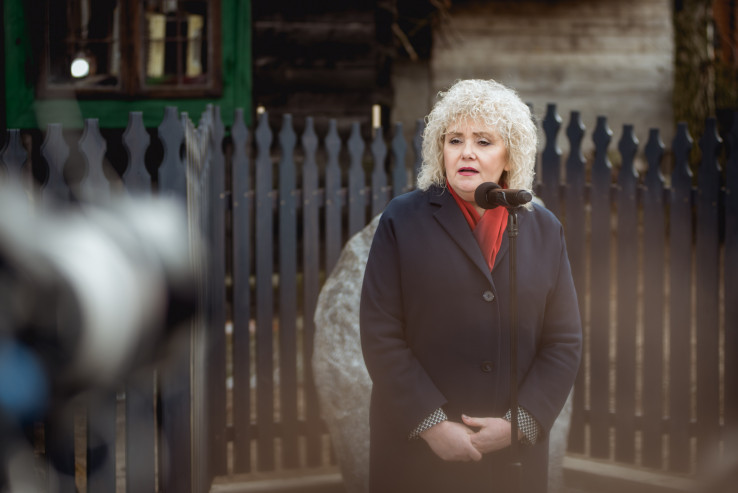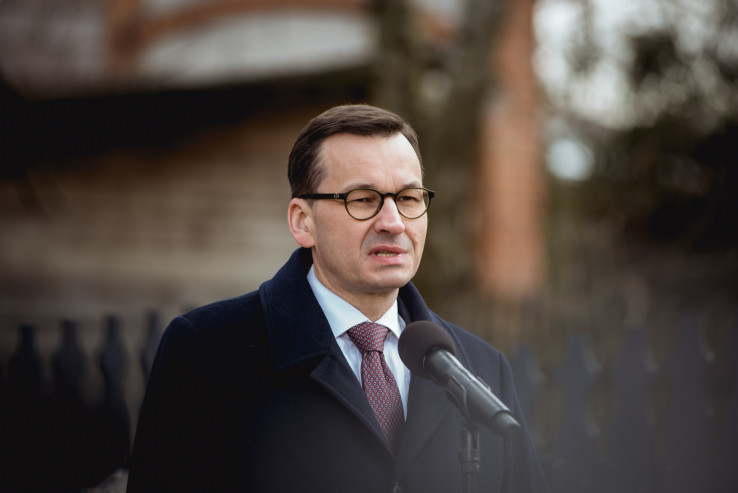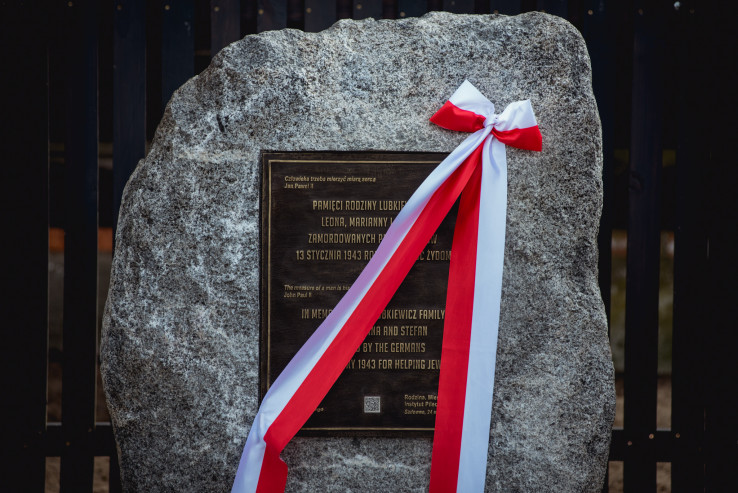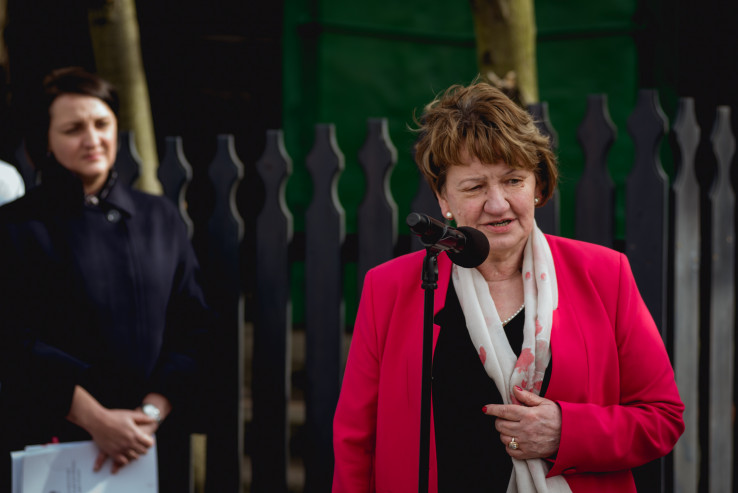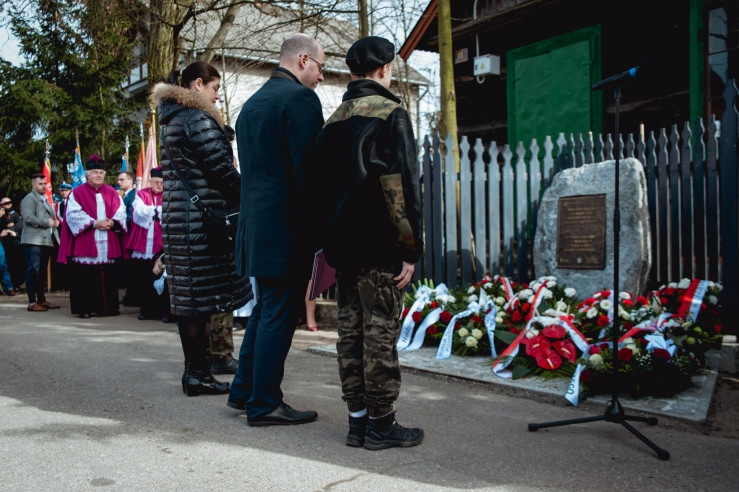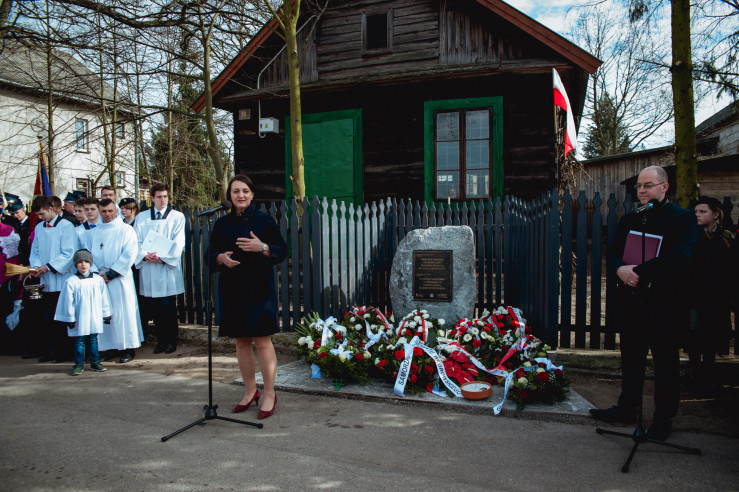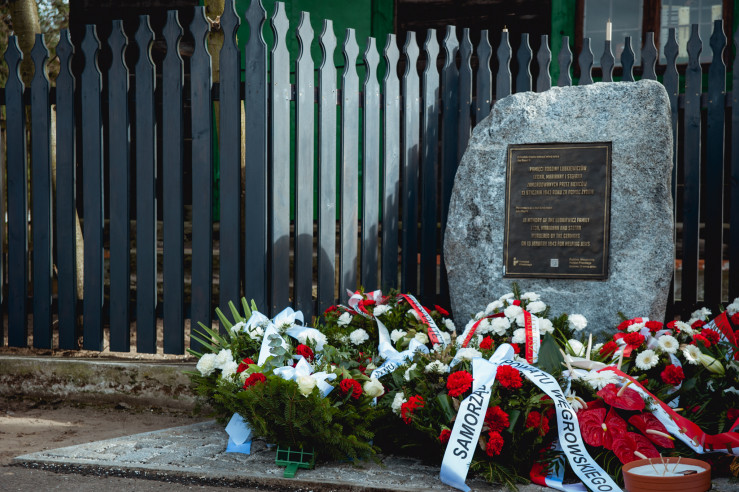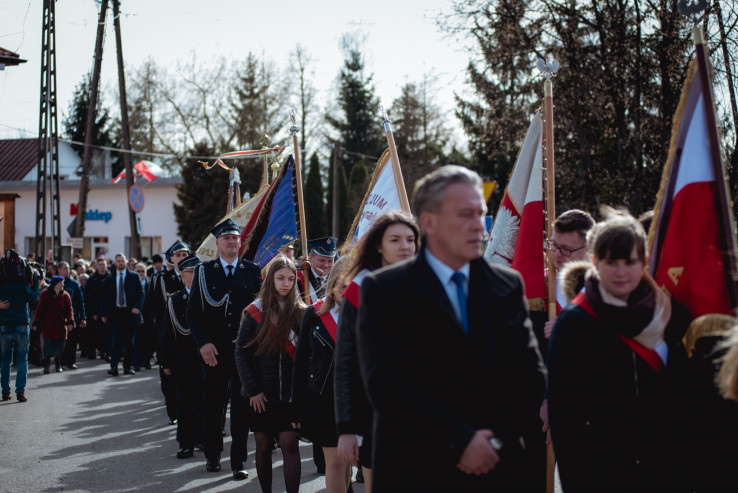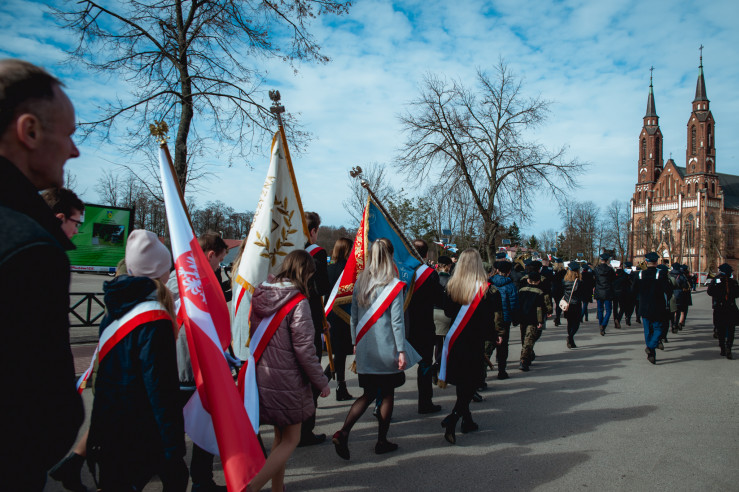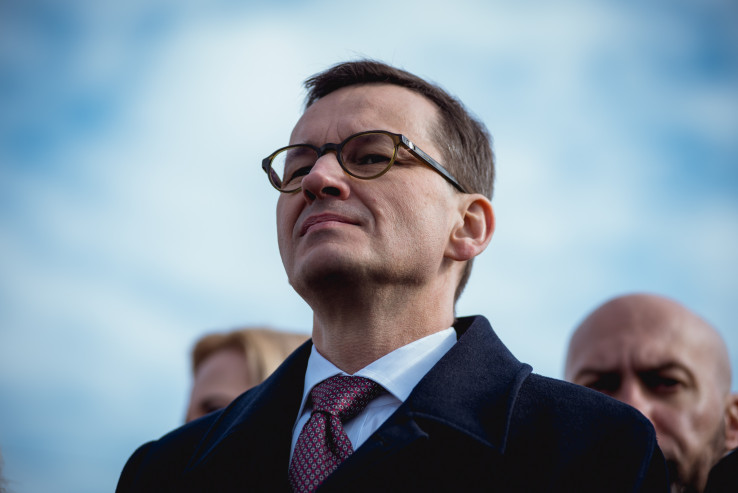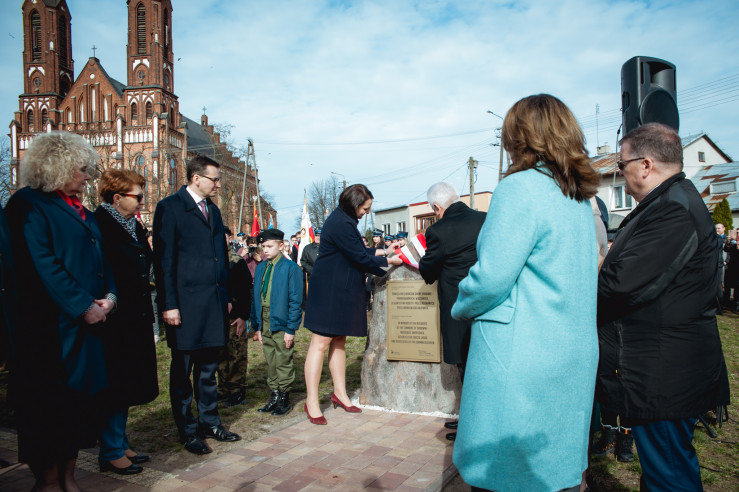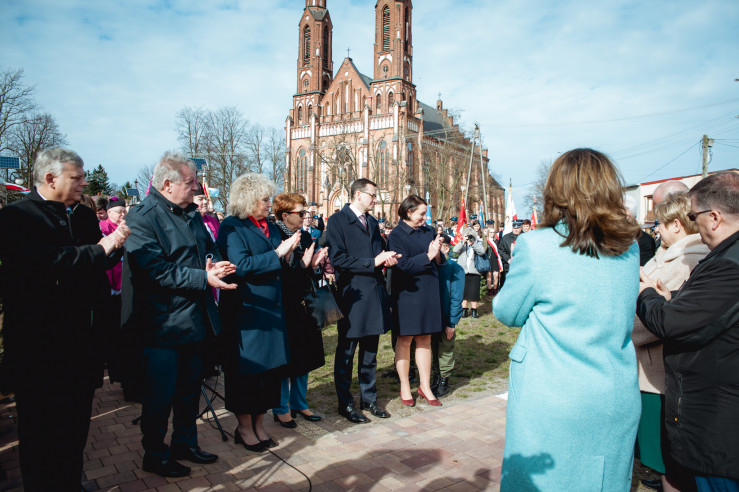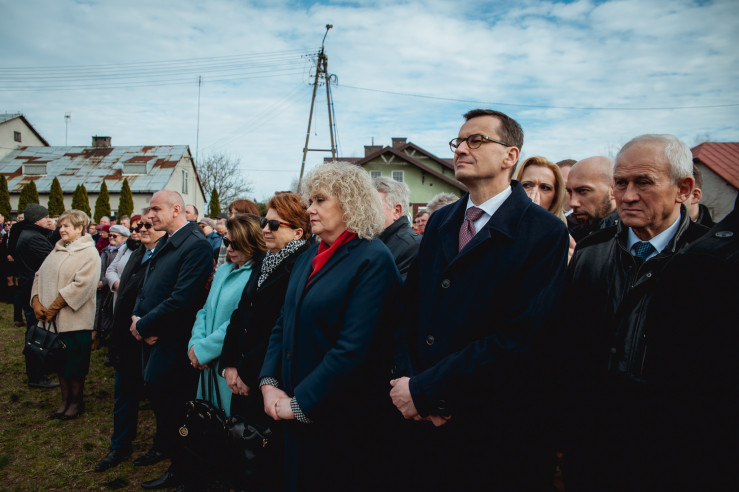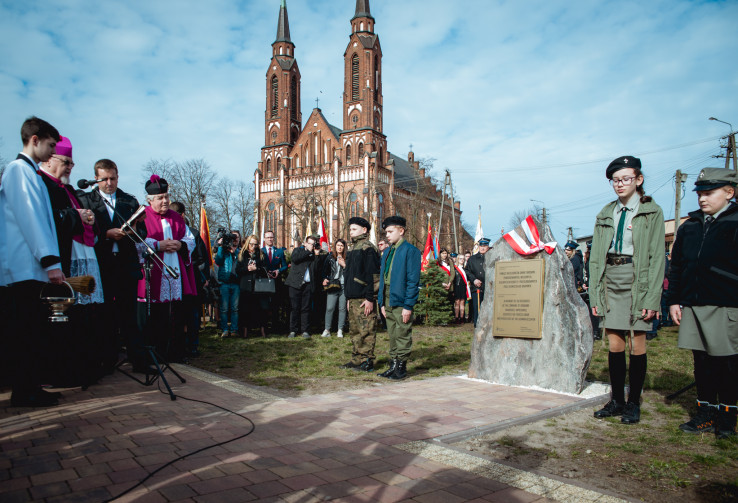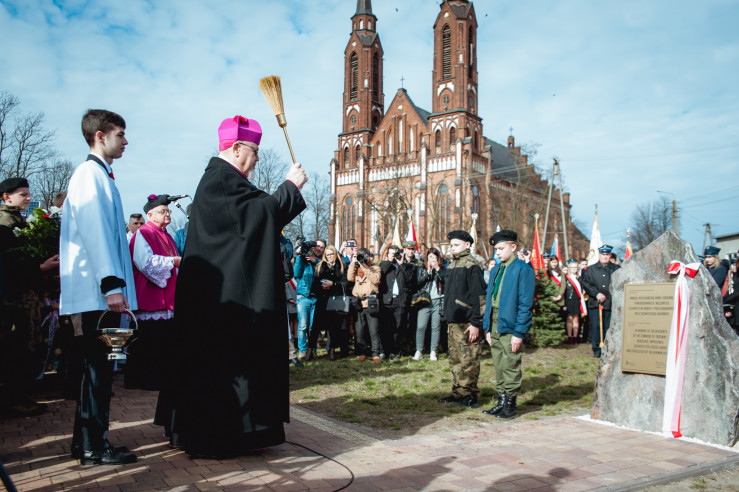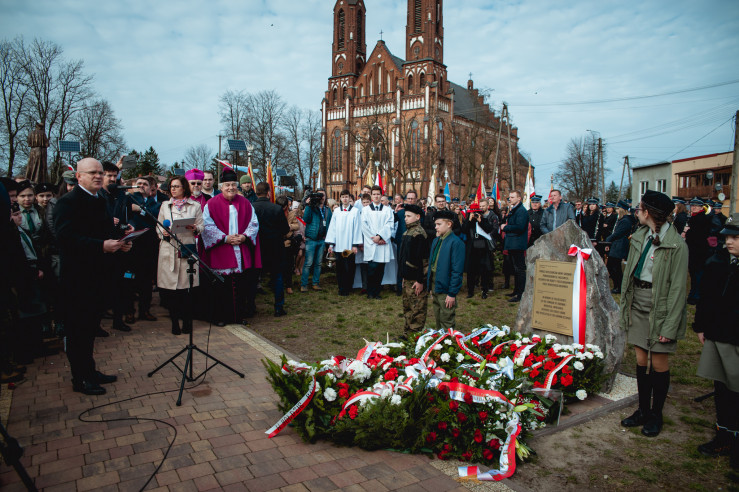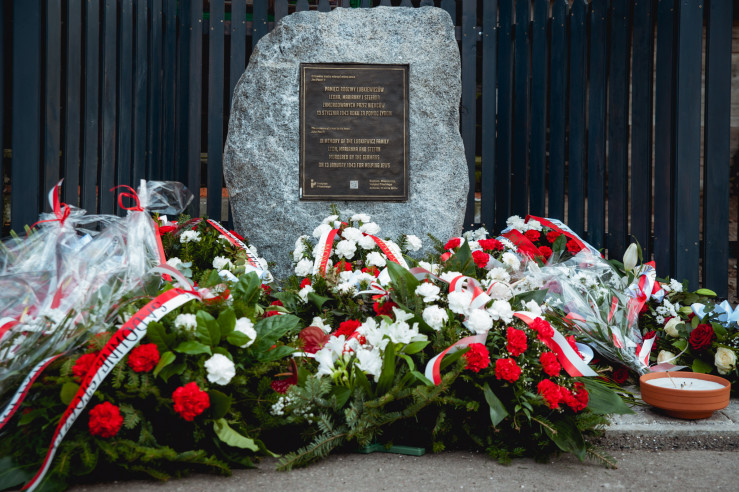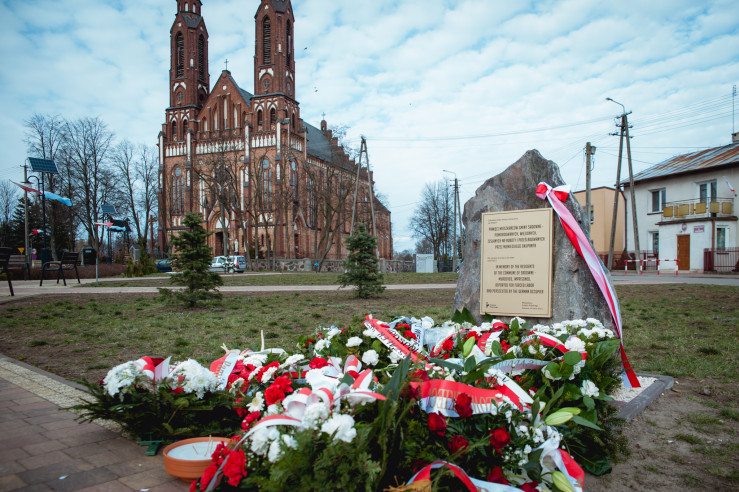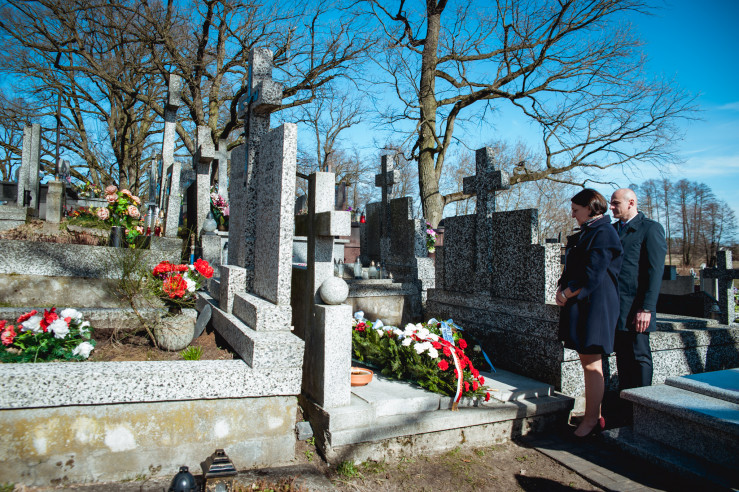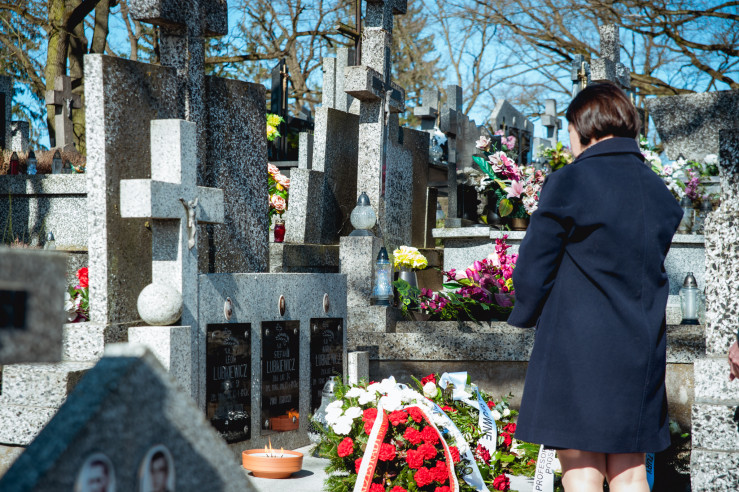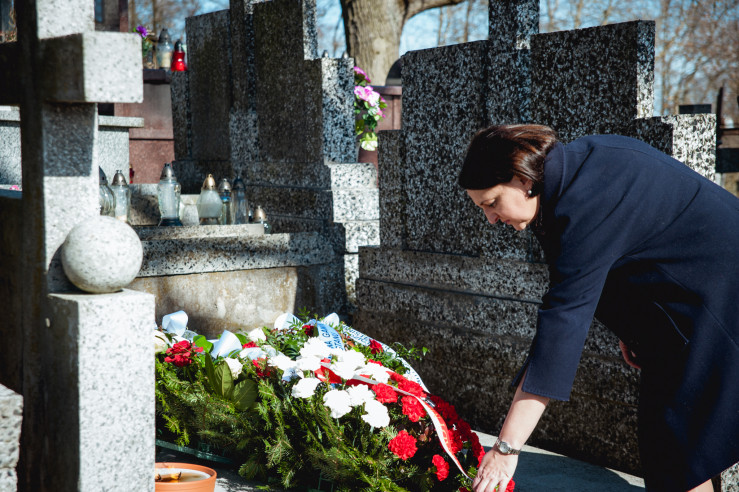A Commemoration of the Lubkiewicz Family from Sadowne - Instytut Pileckiego
A Commemoration of the Lubkiewicz Family from Sadowne
Acting upon an initiative put forward by Magdalena Gawin, Deputy Minister at the Ministry of Culture and National Heritage, the Pilecki Institute has commemorated Marianna, Leon and Stefan Lubkiewicz, who were murdered by the Germans in 1943.
On 24 March – the National Day of Remembrance of Poles who Saved Jews – two plaques were unveiled in Sadowne: one dedicated to the Lubkiewicz family, and the second to the residents of the commune who were murdered during the Nazi occupation.
Sadowne is a township in the district of Węgrów, Province of Mazovia, and before the War its population comprised a large number of people of Jewish ethnic nationality. In July 1942, the Germans set up the death camp of Treblinka – the largest center for the extermination of Jews in the General Government – just a dozen or so kilometers from Sadowne. Many Jewish escapees from the transports and nearby ghettos hid in the vicinity of the town.
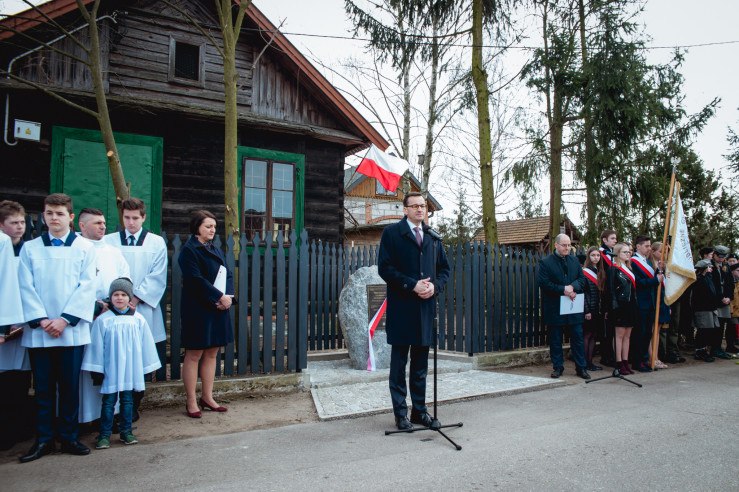
The Tragedy of the Lubkiewicz Family
One of the families from Sadowne who helped the Jews were the Lubkiewiczs, who ran their own bakery. In the beginning of 1943, Sadowne was visited by a penal expedition of German gendarmes, whose task was to catch as many of the hiding Jews as possible and cut off the remainder from the assistance provided by Poles. The tragedy with which we are concerned occurred on 13 January 1943.
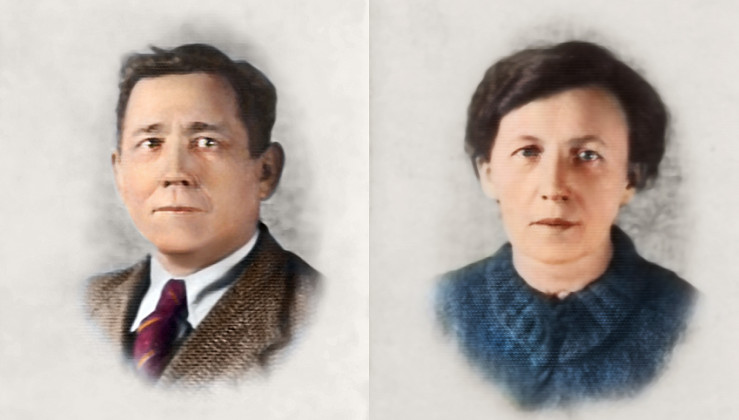
Late in the afternoon, Mrs. Marianna Lubkiewicz gave bread to two Jewesses who were known to her – Miss Czapkiewicz and Miss Elizówna [Eliza or Enzel]. But these women were recognized in the street by the German gendarmes and shot dead on the spot. The gendarmes then burst into the home of the Lubkiewiczs and commenced a lengthy interrogation, which was marked by brutal physical and mental abuse directed against the whole family, including the children – Stefan and the underage Irena. One of the gendarmes, a man by the name of Schultz, behaved with exceptional savagery.
– Schultz really took it out on my family. He would repeatedly force my brother, who was an able musician and played nicely on the accordion, to face the wall, and then beat and kick him mercilessly. He beat my father on the face (…), and also shoved and kicked him (…) At 10.00 p.m. on 13 January 1943, the gendarmes from the penal expedition shot dead my parents and my brother, all terribly beaten and exhausted, in the backyard for saving Jews in Poland. They left me alive because I was a minor, but what is my life worth, with no health and no will to live” – wrote Irena Kamińska (née Lubkiewicz) in a letter to the Warsaw-based Jewish Historical Institute in 1969.
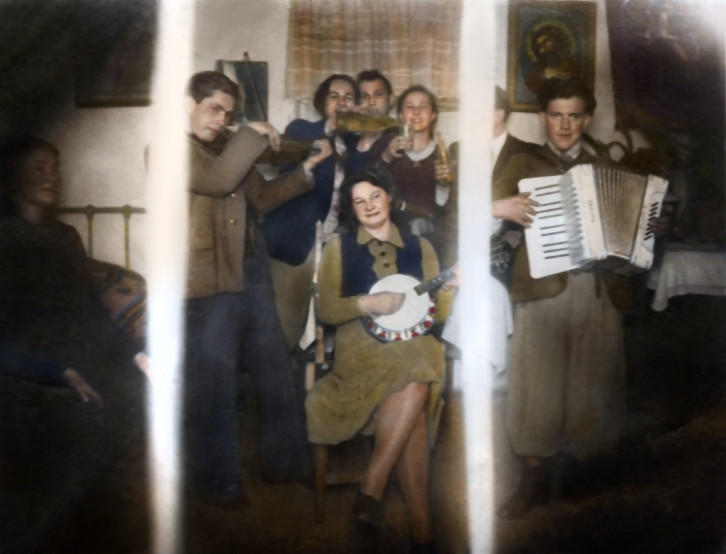
The bodies of the murdered family lay in the snow for a whole day, because the Germans forbid their burial. Following the execution the Nazis plundered their home, stealing stocks of flour and food, as well as household items and clothing. Years later, Marianna and Leon’s oldest son, Stanisław Lubkiewicz, remembered the tragedy thus: – They even pulled off my brother’s new leather shoes, which had tops, while after killing my mother they ripped off her gold earrings, gold wedding ring, and another gold ring.
The circumstances of the family’s murder were disclosed in testimony provided immediately after the War and also in later years by both Poles and Jews. In 1969, Irena Kamińska started her own campaign to bring about the proper commemoration of her parents and brother. At the time she sent a letter to the Jewish Historical Institute, in which she described the death of her family in great detail. She did not live to see her parents and brother honored. Yad Vashem recognized the Lubkiewicz family as Righteous Among the Nations only in 1997.
A Commemoration of Heroes
– Each instance of the survival of both those who saved and those who were saved fills us with joy, but it is also our duty to remember those who paid the highest price for giving aid and succor, declared Professor Magdalena Gawin. –
We must remember them for the sake of their families, who still live in Poland and were forced to mourn the loss of their loved ones in solitude.
– There is a fundamental difference between the administrative penalty, the risk of being imprisoned, which could be imposed on people who helped Jews in Western Europe, and the torture and death that were the lot of those who provided assistance in occupied Poland. And there is a difference between individual and collective responsibility. These distinctions must not be blurred. The memory of murdered Poles, the non-Jewish victims of the Holocaust, should serve to unite people of different faiths and nationalities. It should unite the entire free, democratic world, she added.
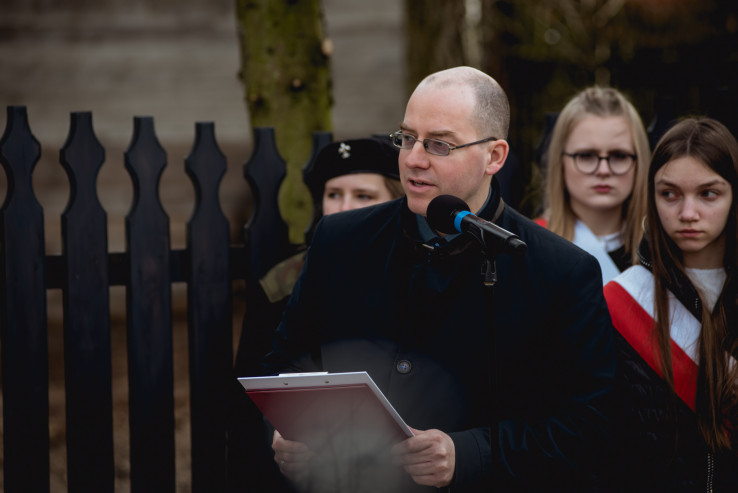
– A loaf of bread – sometimes that is all that it takes to save a life. Sometimes, however, it is all that it takes to lose your own life, as was the case with Marianna, Leon and Stefan Lubkiewicz, said Mateusz Morawiecki, the Chairman of the Council of Ministers.
Here, the Germans subjected all those who dared to help – on occasion as emphatically as the Lubkiewiczs, by giving a loaf of bread – to a cruel death. Mr. and Mrs. Lubkiewicz handed over hundreds and thousands of loaves, and indeed there were hundreds and thousands of similar locations throughout Poland. We owe these people immense gratitude, and they simply must be remembered.
Krzysztof Kamil Baczyński wrote in one of his poems: “O, build houses, oh, and Poland, finally, Poland call – an injustice not, and love – call love (…), so that bread will be for love, not love for bread, so that time is that of growing, not of a thirst for blood. O, build houses, enormous and bright”. For the Lubkiewicz family, bread was indeed for love, not love for bread … Our memory of their heroism shall serve as a foundation upon which we shall build enormous and bright houses – a brilliantly bright Poland!
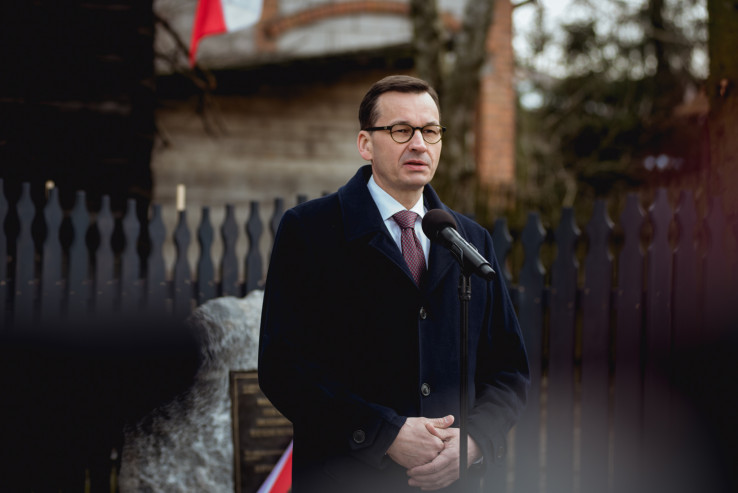
– Sadowne continues to function as a place of great importance on the historical map of German-occupied Poland. Even by World War Two standards, the sheer scale of the terror to which the civilian residents of Sadowne and neighboring areas were subjected was unheard of. The murder of the Lubkiewicz family shows us clearly that those living in the region were punished not only for providing refuge, for the Lubkiewiczs were not hiding Jews, but for the provision of any assistance to Jews at all, said Dr. Wojciech Kozłowski, the Director of the Pilecki Institute.
Compassion alone would not have been a sufficient reason for giving help. It was necessary to act with determination, bravery, and a readiness to sacrifice members of one’s own family.
Only a select few could bring themselves to commit this supreme act of heroism, and that is why we are paying a tribute here today. We remember the Lubkiewicz family and the fact that their two charges, Elizówna [Eliza or Enzel] and Czapkiewicz, shot dead in the street, were carrying a loaf of bread.
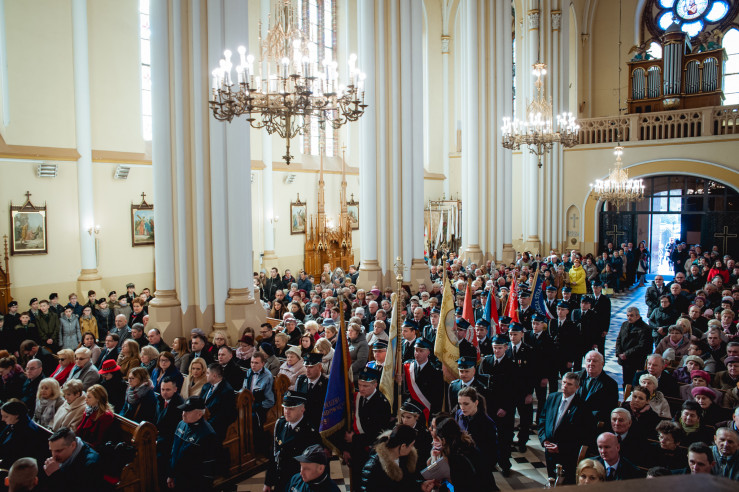
– The debate about how to commemorate the victims of the Second World War has been ongoing for years in Poland and other European countries, stated Maria Koc, the Deputy Speaker of the Senate, adding – But there was no project that allowed us to commemorate those Poles who had been murdered for hiding their Jewish neighbors. It is of great importance that the commemoration is taking place here, in this small township, at the very place where the Lubkiewicz family lived and where they demonstrated their great courage and self-sacrifice.
– Their memory must live on. Marianna, Leon and Stefan Lubkiewicz were people of flesh and blood, just like we are. Photographs present them in typical daily situations. Marianna with a bicycle, Stefan playing on the accordion …, commented Ewa Besztak, the Starost of the District of Węgrów. – We do not want the memory of this family to be limited to a statue, we would like them to be remembered daily as neighbors whose actions are worthy of imitation. As wonderful people whose tragic story has found a place in the memory of the entire Nation.
The Commemorative Plaques
The Pilecki Institute has decided to develop a cohesive and legible model for commemorating such locations and people by working together with local communities. A symbol of great simplicity – a stone with the following short inscription: “In memory of the Lubkiewicz family – Leon, Marianna and Stefan, murdered by the Germans on 13 January 1943 for helping Jews”. The plaque has also been provided with a QR which makes it possible to obtain more information about the event.
– I am so glad that the efforts of my mother, Irena Kamińska, have come to fruition. She had waited so long for this commemoration, and wrote many letters on the matter. I am pleased that I was able to bring her efforts to a successful conclusion, said Mrs. Grażyna Olton, a granddaughter of the murdered victims.
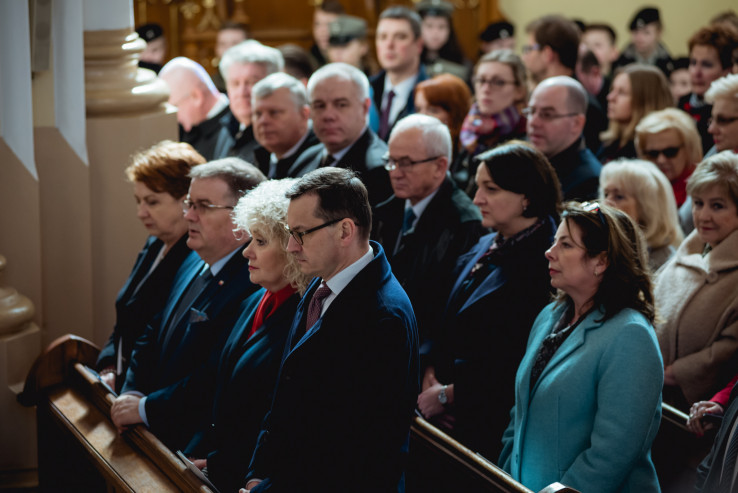
The Commemoration
The unveiling of the plaque dedicated to the Lubkiewicz family at once marks the beginning of a broader campaign of commemoration of Polish citizens who gave aid and succor during the German occupation. Successive ceremonies have been planned for both this and subsequent years, and in their course the Pilecki Institute will devote particular attention to presenting the stories of those who paid the supreme price for acts of solidarity with their Jewish co-citizens.
– The surname Lubkiewicz first appears in the account of Jan Dioniziak, which was written down by my predecessor in office, Ludwik Karczmarczyk, the Chief Officer of the Commune of Sadowne, in 1946. We learn from this document that the actions of the German penal expedition also resulted in the deaths of three other residents of Sadowne, and of some 200 Jews. Despite the existence of these written records, our story remained relatively unknown. But now, thanks to the initiative of the Pilecki Institute, the story of Sadowne will cease to be local in reach and become an element of the common experience of Poles and Jews, stated Waldemar Cyran, the present Chief Officer of the Commune of Sadowne.
On 24 March we also unveiled a plaque dedicated to the residents of the commune of Sadowne who had been murdered, imprisoned, deported to forced labor or otherwise persecuted by the German occupier.
